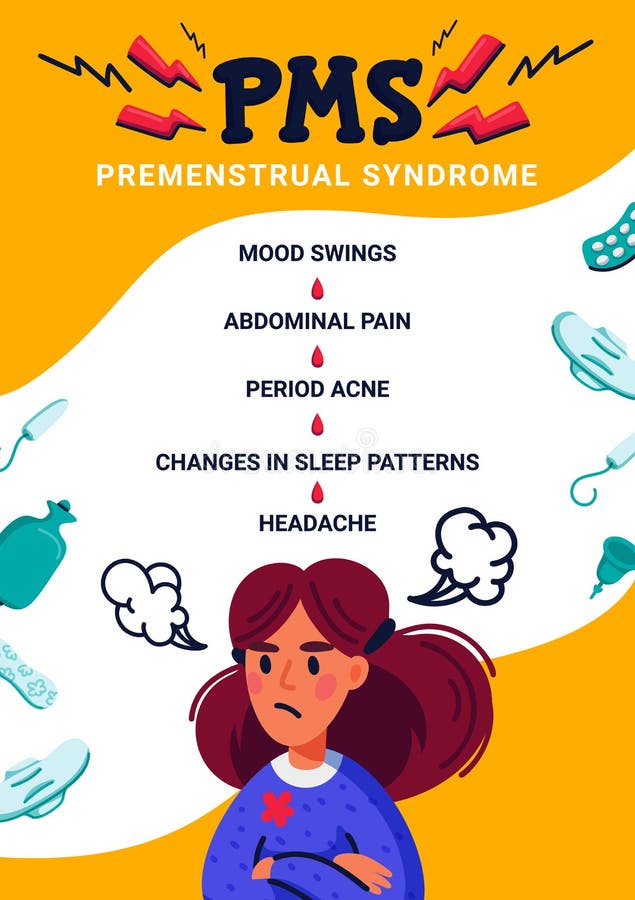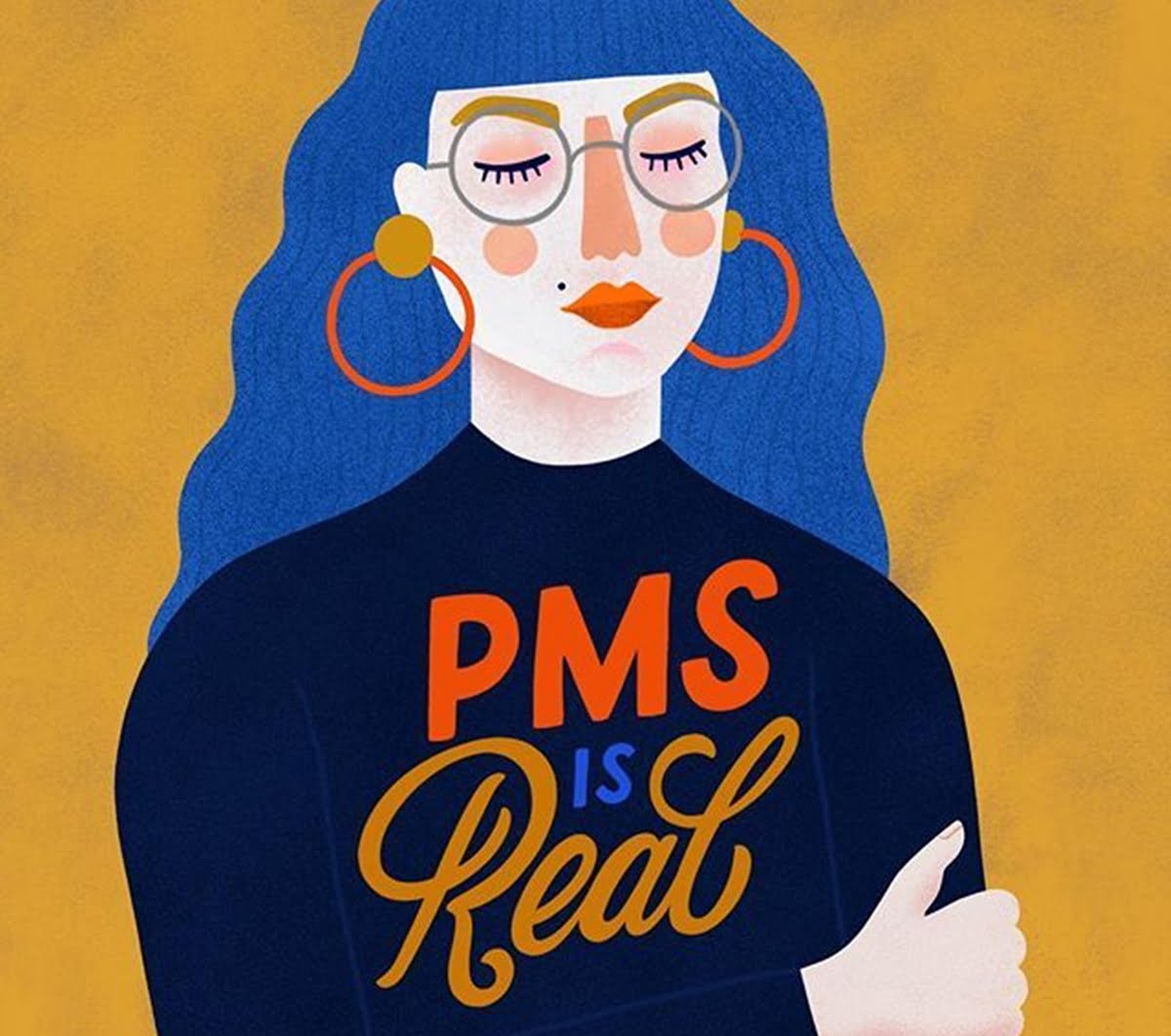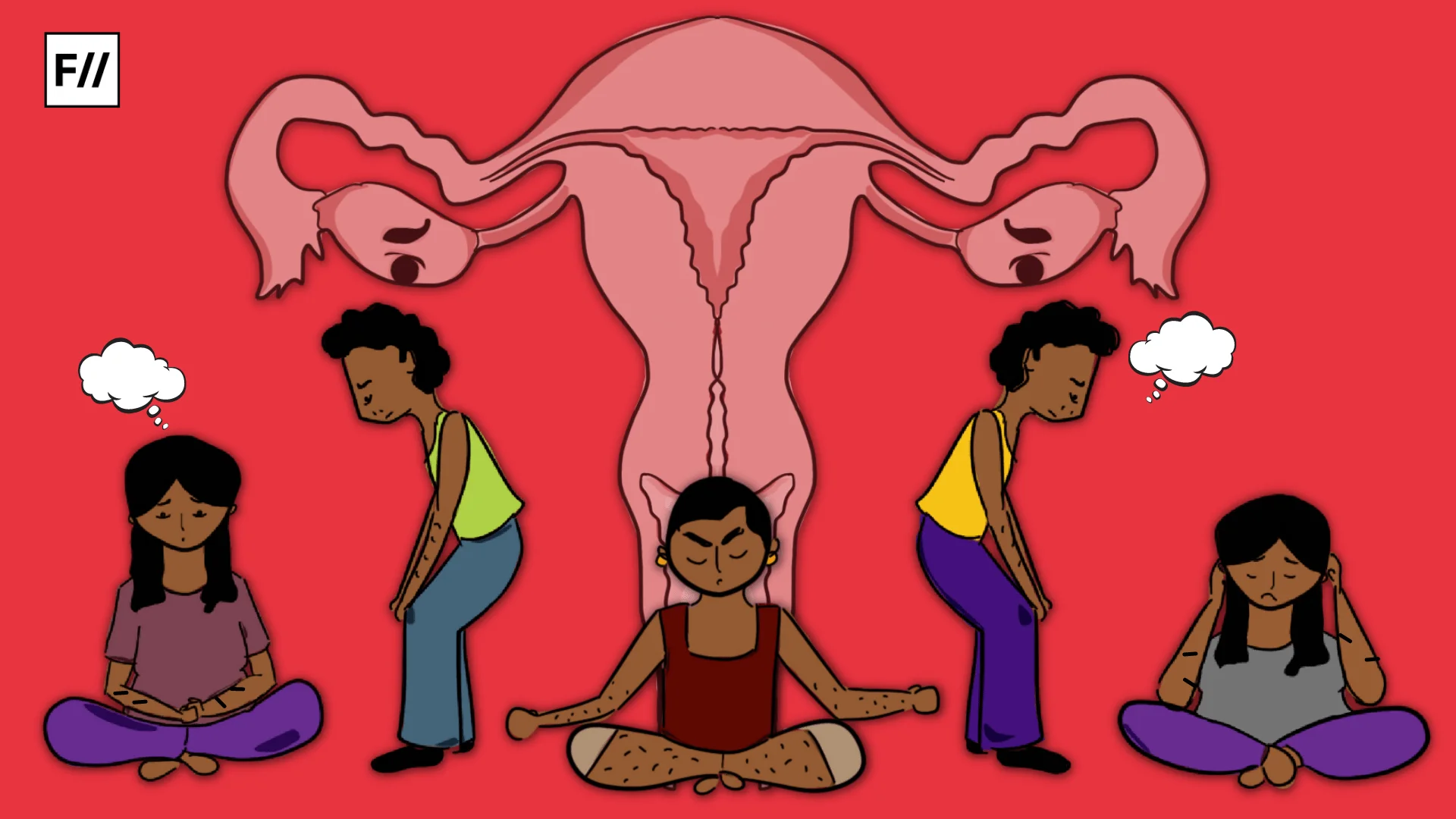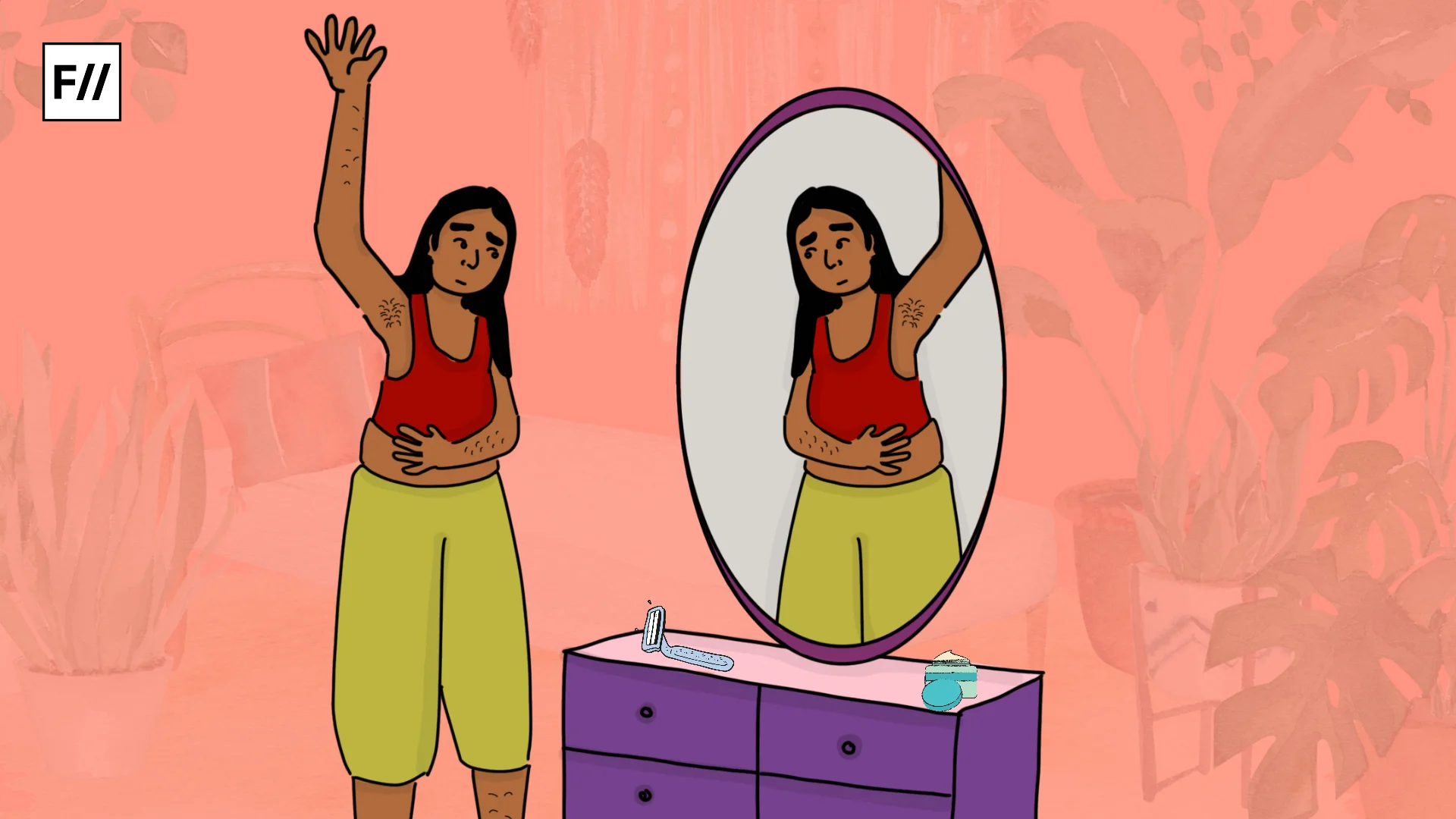“Why is it that instead of believing women when they say they are in pain, we tend to label them as mad? And who can blame us? Bitches be crazy, as Plato famously said.” – Caroline Criado Perez, with her incredibly sarcasm and dry wit, observed in her book Invisible Women. This essay attempts to look at PMS or Premenstrual Symptoms in a way that a world designed by and for men does not.
Some women have it tough and others have it tougher. The condition of PMS is real (contrary to what Dr. Bures has to say).
Also read: Institutionalising Period Leaves: Does ‘Equal’ Mean ‘Identical’?
It was recently that I realised how underrated and understudied PMS was. People, including women, do not fully realise the extent of the impact that it can have. Only time that I hear people talking about it (reel or real) is when they want to delegitimise a woman’s views and emotions by calling her, “irrational”, “moody” or “overly sensitive.” But what is it about PMS that even after exceptional scientific, technological and medical advancements, we are unable to solve the mystery behind this monthly occurrence faced by close to half of (wo)man-kind?
Clue: A world designed by men and for men. There is a huge data gap present which has been created overtime, where studies on PMS were never encouraged historically. This deficit has only deteriorated, resulting in further underfunding for research since there is no compelling evidence for the condition and hence making it difficult for scientists to apply for grants to research on PMS. This is a direct consequence of having almost negligible number of women in decision making positions. Here, I would like to bring to light some astounding facts and numbers that will make one wonder how neglected women are in this world which prioritises men and their issues (and a world where period leaves continue to be debated).
First Things First
What is PMS? It is a mix of both physical and psychological hardships women go through in the weeks leading up to menstruation. These could include, inter alia, mood swings, tiredness, bloating, breast tenderness, headaches, spotty skin, acne, greasy hair, changes in appetite and libido. The symptoms could last for as long as 10-14 days. Research has also shown that period pain can be almost as bad as having heart attacks.

Yet, it has not been fully understood what exactly causes PMS. It is said to be because of hormonal changes, however, there is no conclusive evidence for the same. The don’ts to follow in order to reduce the pain include no smoking, no heavy drinking, reducing intake of caffeine (as if we are not already giving up on enough number of things because of periods). So why exactly do we still not know enough about PMS?
Deprioritised Research – Lack Of Women On Top
PMS is known to affect 90% of women and still remains a highly under-researched subject. Erectile dysfunction, as opposed to PMS, affects 19% of men, and has five times as much material on them. These studies have been vital in understanding the causes and discovering treatments for the condition. This has also helped the pharmaceutical companies in gauging a market and accordingly producing a high range of medicines. All of this remains unavailable for PMS. Around 40% of women do not respond to the treatments currently available. The core problem circles back to insufficient funding for studying PMS. This can be attributed to having all male panels who tend to deny research grants because, well, PMS is just a product of culture and does not really exist.
PMS is known to affect 90% of women and still remains a highly under-researched subject. Erectile dysfunction, as opposed to PMS, affects 19% of men, and has five times as much material on them.
Research has also shown that doctors tend to not take women’s reports of pain with the same kind of seriousness as is attributed to men’s reports. This finds its basis in the sexist belief of women being overly emotional. In another shocking study, it was concluded that men with severe abdominal pain had to wait an average of 49 minutes before they were provided with pain killers. Whereas, women had to wait 65 minutes at least.
Invisible Women – Underrepresentation in Medical Trials
How many of you knew that Viagra was originally being tested for heart diseases? Interestingly, instead of showing the expected results, the participants reported an increase in erections (yes, not just the grants review committee but also the participants are all men). Naturally, this gained traction and in 1998, FDA approved this drug for the alternate use. But ever wondered what would have happened if this study included women?
In 2013, when a study led by Dr. Richard Legro, involving Sildenafil Citrate (medical name for Viagra) seemingly found a cure for PMS which promised total pain relief for over 4 hours and no side effects. Sadly, this study never took off due to lack of funds which were rejected twice because the reviewers, again, did not think that dysmenorrhea was a priority public health issue ( #manel on the move).
So, I guess what I mean to say is we gotta thank our stars every day for the creation of Meftal in cases of insignificant cramps. For anything more serious, contraceptive pills, anti-depressants and diuretics (water pills to get rid of the extra fluid in our body and in turn bloating) are anyway easily available, right? All because PMS continues to be dismissed as not important enough an issue to have structured medication be made available for.
Premenstrual Dysphoric Disorder (PMDD) – The lesser known reality
Around 5 to 8 % women experience a severe form of PMS known as Premenstrual Dysphoric Disorder or PMDD. A condition so extreme that it can drive up to 15% of women, suffering from it, to attempt suicide. Some literature state how Sylvia Plath was battling the same when she killed herself. It can make it tough to maintain healthy relationships, work and socialise for a patient of PMDD.
PMDD is a hormone related problem but the sufferers also experience mental health symptoms such as depression and suicidal thoughts. For this reason, it is often misdiagnosed as bipolar disease as well. Recently, it has been recognised and listed as a mental health issue in the United Kingdom. But what remains to be seen is, if this classification would support the condition to be taken more seriously or exacerbate the already existing stigma attached to both PMDD and mental health problems?
Also read: Zomato’s Period Leave Policy And The Feminist Dilemma Around It
From A World For Men To A World For Humans
In India, the problem of PMS/PMDD is gaining recognition but is still largely trivialised. Recently, a judgement passed by the Rajasthan High Court held that PMS triggered insanity in a woman which led her to commit a murder. Developments like these could pay way to initiate a public discussion on PMS and PMDD. If steered in the right direction, it could encourage more clinical studies and improve social awareness. Education at school level, sensitisation drives, correct portrayal in commercial movies are just some ways to kick-start the conversation.
The evidence of how women and conditions such as PMS are heavily being ignored by the medical fraternity all over the world is crushing. Their experiences are being dismissed and disbelieved, courtesy the belief that men are the default template.
However, the evidence of how women and conditions such as PMS are heavily being ignored by the medical fraternity all over the world is crushing. Their experiences are being dismissed and disbelieved, courtesy the belief that men are the default template. Doctors must be trained to listen to women and believe them, instead of dismissing their claims and calling them hysterical. We also need more women out in public spaces and participating in discussions pertaining to their bodies. And we need more women claiming the right to make decisions about themselves. This world can no longer be designed by men and for men.
Simranjyot Kaur, a recent graduate of National Law School of India University, Bangalore. Highly interested in studying intersectional material concerning Women and Dalits in particular. Currently, checking off things to do from the quintessential lockdown list of reading, writing, gymming and binge watching. She can be found on Instagram.
Featured Image Source: Pinterest





While your article is intriguing and informative, the solution you keep referring to will fall flat on its face. Inclusion of more women does not assure a better representation in case of women and periods. Historically and socially we are aware that women just become patriarchal agents and almost never stand up for the rights of their own. I was under the same illusion till I heard women debating on period leaves.
While your concerns and references are genuine, the problem is deeper and solution non-existent.